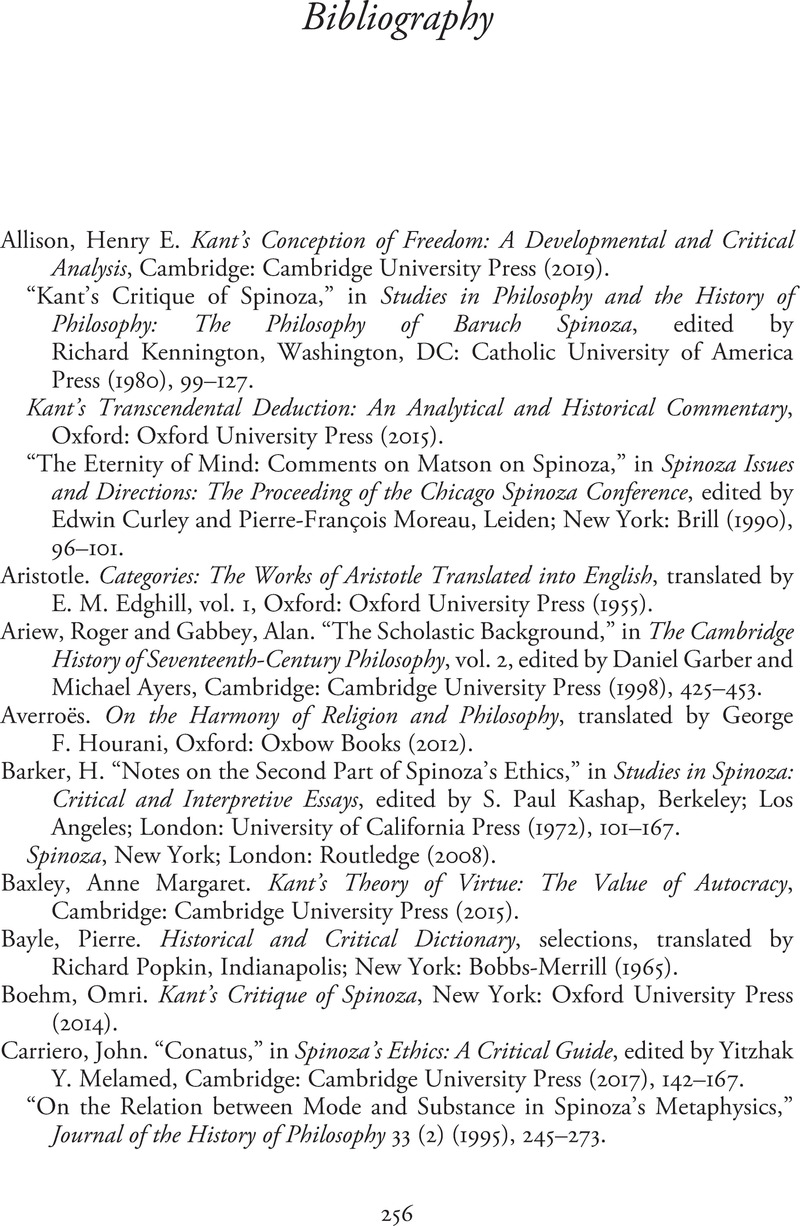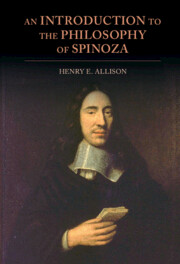Book contents
- An Introduction to the Philosophy of Spinoza
- An Introduction to the Philosophy of Spinoza
- Copyright page
- Contents
- Preface
- Acknowledgments
- Note on the Text
- Abbreviations
- Chapter 1 The Life of Spinoza
- Chapter 2 Spinoza’s Philosophy in Its Historical Context
- Chapter 3 God
- Chapter 4 The Human Mind
- Chapter 5 The Human Emotions
- Chapter 6 Spinoza’s Virtue Ethic
- Chapter 7 Freedom and Blessedness
- Chapter 8 The Individual and the State
- Chapter 9 The Theology of the Theological-Political Treatise
- Bibliography
- Index
- References
Bibliography
Published online by Cambridge University Press: 24 February 2022
- An Introduction to the Philosophy of Spinoza
- An Introduction to the Philosophy of Spinoza
- Copyright page
- Contents
- Preface
- Acknowledgments
- Note on the Text
- Abbreviations
- Chapter 1 The Life of Spinoza
- Chapter 2 Spinoza’s Philosophy in Its Historical Context
- Chapter 3 God
- Chapter 4 The Human Mind
- Chapter 5 The Human Emotions
- Chapter 6 Spinoza’s Virtue Ethic
- Chapter 7 Freedom and Blessedness
- Chapter 8 The Individual and the State
- Chapter 9 The Theology of the Theological-Political Treatise
- Bibliography
- Index
- References
Summary

- Type
- Chapter
- Information
- An Introduction to the Philosophy of Spinoza , pp. 256 - 263Publisher: Cambridge University PressPrint publication year: 2022



